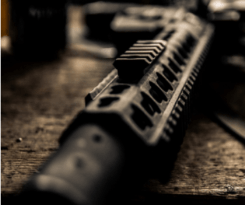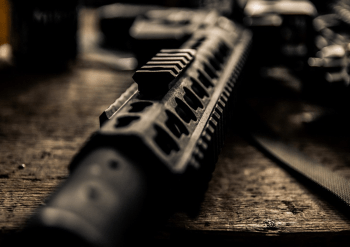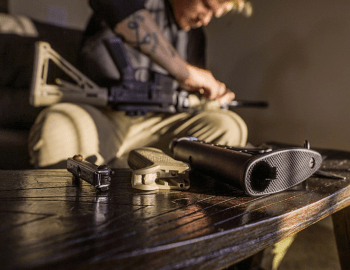Crucial Questions You Need To Answer Before Getting A Firearm

Getting a firearm is easy in most states. Becoming a responsible firearm owner is a different story. If you’ve decided that you want to get a firearm, there are a few questions you’ll need to answer first.
Depending on how you answer these questions, you’ll find that a majority of firearms you can purchase aren’t really all that versatile. Here’s a simple flowchart for purchasing firearms.
Do I Need a Firearm?
This one is purely subjective. That being said, it’s not called the Bill of Needs but the Bill of Rights. It is your right to have a firearm and if you want one, you should get one.
What do You Need a Firearm For?
Humor aside, let’s talk about the first real question you need to answer carefully. Firearms are tools, just like hammers and pliers are. The important thing is to find the right tool for the job you need to do.
If you want to hunt, you’ll want to get a shotgun or a rifle. The particular type and caliber will then depend on the kind of game you’re hunting. Are you stalking elk? Get yourself a bolt gun in 7mm Remington Magnum, and you’re set. Then again, if you’re going turkey hunting, a 12-gauge shotgun is a much better tool.
Self-defense is a whole different story. There are essentially two dimensions to self-defense — defense of your life and property in your home and defense of your life outside your home.
- Self-defense at home – Although all types of firearms will work in this scenario, a shotgun or a rifle is still the go-to choice for many. A 12-gauge shotgun loaded with buckshot or slugs is the cheapest option. An AR is a bit more expensive but offers plenty of versatility. Either way, handguns aren’t the optimal choice for home defense.
- Self-defense outside your home – Carrying a firearm is defined by a set of rules, laws, and regulations which are unique to every state. That being said, while it’s perfectly legal to open carry an AR in many places, it’s not the most practical thing to do. Handguns are still the preferred choice for both open and concealed carry.
Buy or Build a Firearm?
Building your own firearm has become a popular way of saving some money and enjoying a fun project. According to The Arms Guide, you can shave off a decent chunk of your spending by going with an 80% lower if you’re building an AR. All you really need are a few basic machining tools, a bit of know-how, and some patience to complete an AR build.
That being said, building a firearm isn’t for everyone. If you’re not exactly sure if you have the patience to complete such a project, it’s much better to just get a complete, prebuilt firearm. This is especially true if you’ll use that firearm for self-defense.
Nowadays, however, it’s pretty easy to get your hands on all the necessary parts and learn how to make one on your own. Lots of people who want to do this purchase small pistol primers here to get the best results. You’ll just need to make sure you have all the necessary tools and safety equipment for the job, as well as knowledge of what works best with your firearm build.
When push comes to shove, that rifle needs to send a round downrange the moment you squeeze the trigger. Gunfights happen fast and there’s no room for error.
Will You Use Accessories?
The modern firearm industry is all about accessories. Long gone are the days when you’d just get a firearm and use it as is. In fact, half of the rifles you can buy today don’t even have iron sights on them.
Nostalgia aside, there’s a good reason why we use accessories. Being able to mount a light on your rifle, or a red dot to your pistol improves your ability to put rounds on target when things go bump in the night.
The important thing is knowing what accessories you plan on using on your firearm. If you’re getting a pistol, and you want to fit it with a light and a red dot, you’ll need to make sure that whatever model you choose has a rail on the receiver and a milled-out spot for optics on the slide. The same goes for rifles and shotguns.
Don’t get an AR with plastic handguards and a fixed carry handle if you want to run accessories on it.
Train, Train, Train
Whatever firearm you end up getting won’t magically make you a good hunter or a proficient enough shooter to win a gunfight. You need to train. In fact, when you plan your budget, make sure that you incorporate training. This is especially important if you’re getting a firearm for self-defense. There are so many awesome classes taught by people with actual experience.
Buy yourself a spot in one of them and train. If you’re not pushing your abilities to their limits, you’re not training. Plinking paper at your local range is a good way to familiarize yourself with your firearm, but it’s not a good way to become a good hunter or a good gunfighter.


